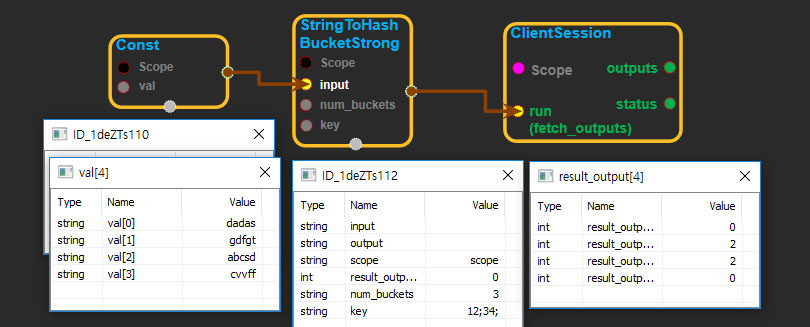StringToHashBucketStrong
tensorflow C++ API
tensorflow::ops::StringToHashBucketStrong
Converts each string in the input Tensor to its hash mod by a number of buckets.
Summary
The hash function is deterministic on the content of the string within the process. The hash function is a keyed hash function, where attribute key defines the key of the hash function. key is an array of 2 elements.
A strong hash is important when inputs may be malicious, e.g. URLs with additional components. Adversaries could try to make their inputs hash to the same bucket for a denial-of-service attack or to skew the results. A strong hash prevents this by making it difficult, if not infeasible, to compute inputs that hash to the same bucket. This comes at a cost of roughly 4x higher compute time than tf.string_to_hash_bucket_fast.
Arguments:
- scope: A Scope object
- input: The strings to assign a hash bucket.
- num_buckets: The number of buckets.
- key: The key for the keyed hash function passed as a list of two uint64 elements.
Returns:
StringToHashBucketStrong block
Source link : https://github.com/EXPNUNI/enuSpaceTensorflow/blob/master/enuSpaceTensorflow/tf_string.cpp

Argument:
- Scope scope : A Scope object (A scope is generated automatically each page. A scope is not connected.)
- Input input: connect Input node.
- num_buckets : Input num_buckets in value.
- key: Input key in value.
Return:
- Output output : Output object of StringToHashBucketStrong class object.
Result:
- std::vector(Tensor) product_result : Returned object of executed result by calling session.
Using Method
